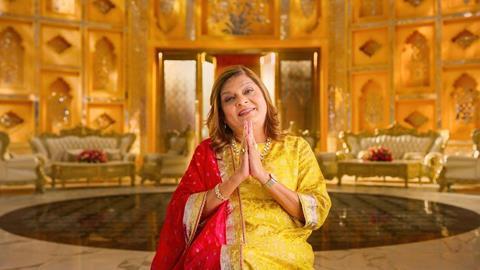In a culture where individual choice is king, more and more people like the idea of an arranged marriage. As Netflix’s Indian Matchmaking gains huge audiences, Woman Alive Editor in Chief Tola Doll Fisher, asks why we’re turning to seemingly outdated methods and wonders if a matchmaker would do a good job of finding her a husband.

I was 22 when I asked my mum for an arranged marriage. Recently single after a relationship with a “very good Christian” ended, I was fed up of trying on my own. Growing up in a pretty conventional church, I had assumed my equally-yoked partner would sail into my life ready-made with the Ephesians 6 armour of God intact and ready for (marital) action. Alas, it was not so and despite my request for the aforementioned, my mother neglected to find me a suitable match. I did then find my own partner and was engaged at 24 and married at 26. Unfortunately, that ended in divorce and no amount of dating apps or advice from dating shows has managed to change my relationship status.
Enter my fascination with Indian Matchmaking. Recently I tuned into the second season of this popular Netflix show and despite its predictability and less convincing love matches, I’m still transfixed. Matchmaker Sima is based in Mumbai but travels to and from the US in order to match singletons, usually in their 20s and 30s, who have found themselves economically sound but lacking in love.
Sima is a gentle but firm aunty who starts off the series by saying: “First is marriage, then comes love.” Which, to someone like myself who is both a journalist and romantic, sounded like a quote that had been lost in translation. But turns out she really does mean this. Her process of connecting people includes sitting down with both the client and the client’s family (who are often one and the same), listening to what they describe as their “needs” and then whittling the list down to something a bit less Christmas gift list to something with a bit more compromise.
Sima is a gentle but firm aunty who starts off the series by saying: “First is marriage, then comes love.”
What I love about the idea of an arranged marriage is that it is about so much more than just the two people in the relationship. Without the blindness that occurs when we fancy someone, our families will be able to pick up on things that we won’t, ensuring that we end up with a partner that will last the tough times when “tall, dark and handsome” cannot solve the reality of every-day married life. And yes, you still get to choose. You just get some help along the way.
As far as we are aware, in biblical times most marriages were arranged in some way or another. And some fell into the love category as with Jacob and Rachel and some unfortunately, like with Jacob and Leah, did not. Men and women did not pick each other up in isolation without understanding that behind the object of their affections was a family that loved them. They were also aware that they would have to be accountable to their families if the strength of the relationship was ever called into question. And here’s where I share some vulnerability: Sometimes I wonder if my husband would have divorced me so easily had he had to “answer to” my family, to whom I was estranged when we got married. If you enter a relationship having had to be somewhat vetted by the family and with both sides having some sort of agreement as to the union, I imagine it wouldn’t be so easy to back out of it if you simply change your mind.
Sometimes I wonder if my husband would have divorced me so easily had he had to “answer to” my family.
We’re a people that recognise a deep seated desire to love and we’ve fallen into the Hollywood ideal for how that should happen. Which is strange, because for the most part, we eschew the idea of following the world’s patterns but here we are with Christian dating apps and the concept of falling in love when actually, the love Jesus talks about seems more focused on sacrifice and commitment. And these aren’t really things you fall into.
Since we live in an era where choice is key, the idea of having someone as significant as a life partner chosen for you might sound ridiculously outdated. But did you know that there are more than 1,500 dating apps and more than 300 million users worldwide? Not to mention the dating television we love to hate (tell me you’ve watched Love Island without telling me how bad it is that you’ve watched Love Island). Most of the singletons on Indian Matchmaking have tried dating apps but the fact that they are choosing to go back to basics speaks volumes.
So while I’m not running back to my mum to have her try her hand at arranging a marriage for me, I am curious about the kind of man she would find and, to be honest, whether she would do a better job than I did!



































No comments yet